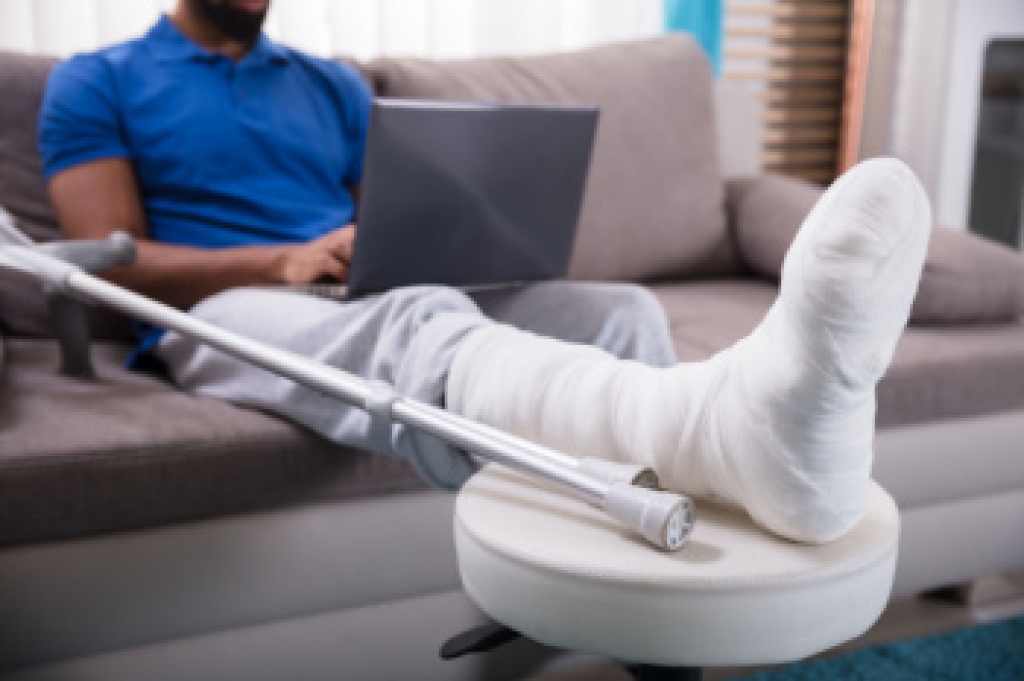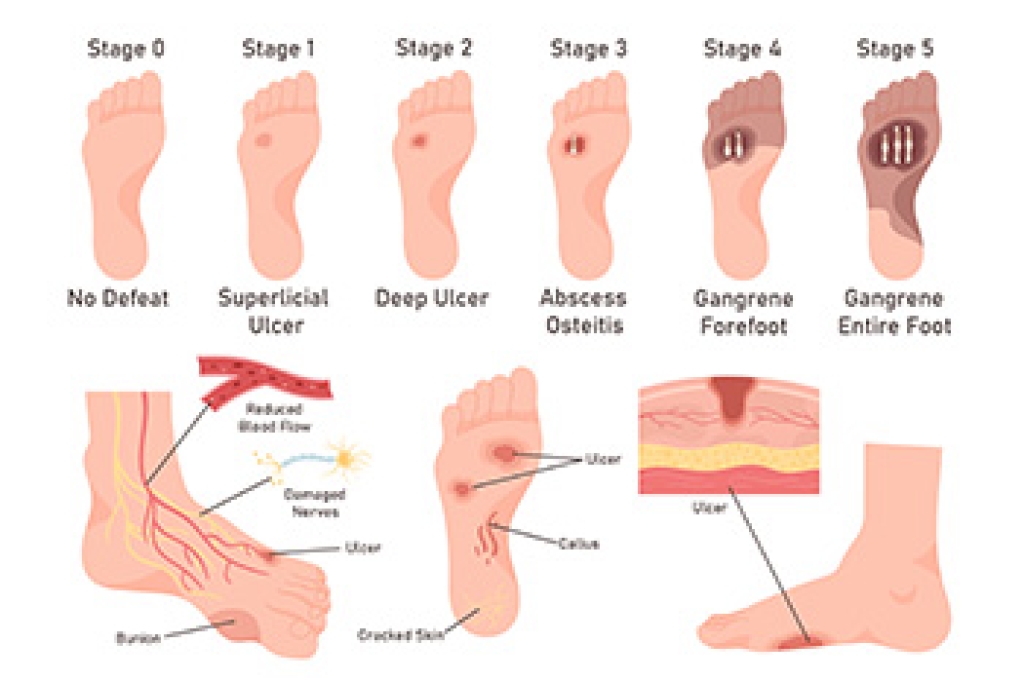
A metatarsal fracture is a break in one of the long bones in the front of the foot. This injury is commonly caused by direct injury, overuse, sudden increases in activity, or repetitive stress from walking or running. Symptoms include swelling, bruising, and difficulty bearing weight. The foot may look swollen or discolored, and it may feel painful with movement. In some cases, the pain increases during activity and improves with rest. A podiatrist can help by starting with a careful physical examination and imaging, such as X-rays, to confirm the diagnosis and determine severity. Treatment may include immobilization, protective footwear, pain management, and targeted exercises as healing progresses. In more severe cases, advanced support or surgical planning may be needed. Early diagnosis is important to prevent improper healing and long-term foot problems. If you think you may have a metatarsal fracture, it is suggested that you make an appointment with a podiatrist for evaluation and treatment.
A broken foot requires immediate medical attention and treatment. If you need your feet checked, contact Richard DiBacco, DPM from Podiatry Associates of Erie, Inc.. Our doctor can provide the care you need to keep you pain-free and on your feet.
Broken Foot Causes, Symptoms, and Treatment
A broken foot is caused by one of the bones in the foot typically breaking when bended, crushed, or stretched beyond its natural capabilities. Usually the location of the fracture indicates how the break occurred, whether it was through an object, fall, or any other type of injury.
Common Symptoms of Broken Feet:
- Bruising
- Pain
- Redness
- Swelling
- Blue in color
- Numbness
- Cold
- Misshapen
- Cuts
- Deformities
Those that suspect they have a broken foot shoot seek urgent medical attention where a medical professional could diagnose the severity.
Treatment for broken bones varies depending on the cause, severity and location. Some will require the use of splints, casts or crutches while others could even involve surgery to repair the broken bones. Personal care includes the use of ice and keeping the foot stabilized and elevated.
If you have any questions, please feel free to contact one of our offices located in Erie and Meadville, PA, . We offer the newest diagnostic and treatment technologies for all your foot care needs.







